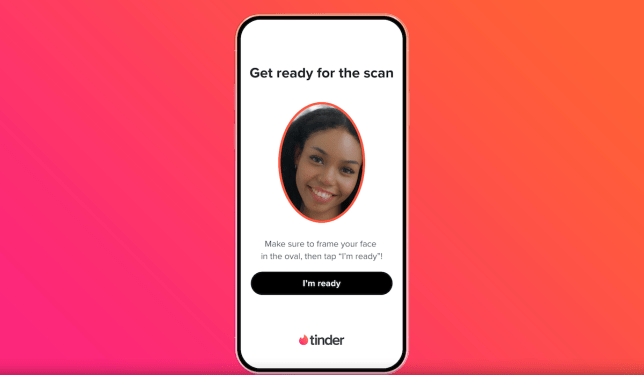On Wednesday, the dating app giant Tinder announced it is expanding its facial verification feature to more users in the United States. This feature, known as Face Check, requires new users to verify their identity by submitting a short video selfie. The initiative aims to reduce impersonation on the platform and ensure people are not connecting with bots or fake accounts.
Face Check creates a 3D video scan of a user’s face to verify its similarity with their profile pictures. Members who successfully complete the verification process receive a badge on their profiles, indicating to others that they have been verified. The feature also identifies if the same face is being used across different accounts, providing an additional safeguard against impersonation and fraudulent profiles.
Tinder states that the video selfies are deleted shortly after review. However, the company keeps a non-reversible, encrypted face map and face vector. This data is used to help verify new photos, spot fraud, and prevent people from creating duplicate accounts.
The Face Check feature has already been active in California since June, as well as in Colombia, Canada, Australia, India, and other countries across Southeast Asia. It will roll out to additional U.S. states in the coming months. The feature is also planned for other dating apps owned by Tinder’s parent company, Match Group, in 2026.
Tinder has faced challenges with users leaving the platform due to safety and privacy concerns, along with unfavorable encounters with other users. The company is also experiencing challenges in revenue, reporting a 7 percent drop in paying users during the second quarter of 2025.
Since launching the feature, Tinder claims to have seen promising results. The company reports a 60 percent reduction in exposure to potential bad actors and a 40 percent decline in the number of bad actor reports.
Other companies have recently introduced similar anti-scam facial recognition tests. For example, Meta uses comparable technology to help users regain access to compromised Facebook or Instagram accounts. Bumble also offers a photo verification process, which requires members to take a selfie mimicking a selected pose to get verified.

